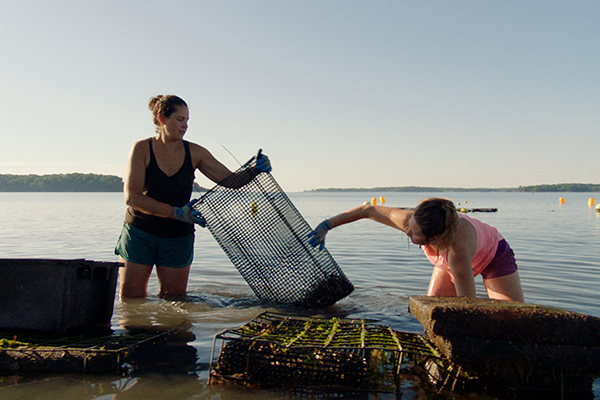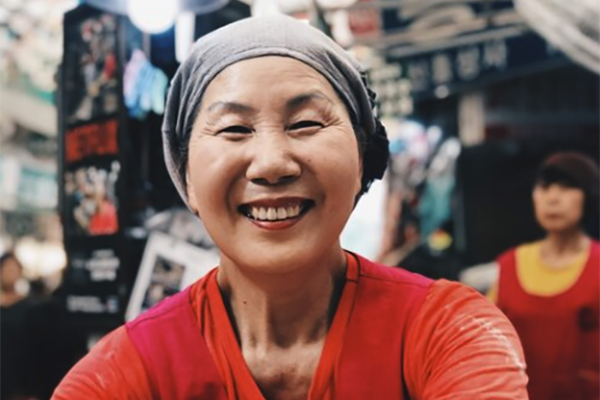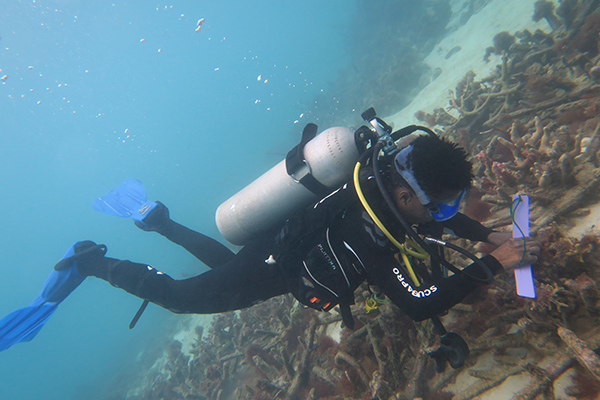In Hot Water explores U.S. seafood regions, amplifies marginalized voices on global warming impacts and showcases resilience solutions
 Seafood and Gender Equality (SAGE) and Seaworthy have launched a new climate change podcast called In Hot Water, a Climate and Seafood Podcast.
Seafood and Gender Equality (SAGE) and Seaworthy have launched a new climate change podcast called In Hot Water, a Climate and Seafood Podcast.
In this series, three generations – Julie Kuchepatov (Gen X), Crystal Sanders-Alvarado (Xennial) and Cameron Moore (Gen Z) – hit the road to explore key seafood-producing regions across the U.S. and hear from people working at the intersections of fisheries, aquaculture, seafood and conservation while grappling with the effects of the global climate crisis.
SAGE and Seaworthy, collaborators on The Conch podcast since 2021, came up with the idea for In Hot Water out of a shared love of seafood and a dedication to contribute to a community-driven intergenerational effort in the movement towards climate justice.
“When we talk about climate justice, we recognize that marginalized and oppressed groups are the communities experiencing the greatest impacts of the climate crisis which exacerbate inequitable social conditions,” said Sanders-Alvarado, founder of Seaworthy. “In this series, we hope to amplify the voices of those most affected and center their leadership and community-identified solutions.”
The four-part series begins in the Lone Star State of Texas with a visit to the Coastal Bend along the Gulf of Mexico. The Gulf is a crucial hub for offshore petroleum production, contributing to one-sixth of the United States’ total production and serves as a critically important source of seafood, supplying more than 40 percent of the U.S. domestic seafood.
The trio travels from Aransas Pass – the self-proclaimed “Shrimp Capital of Texas” – to Corpus Christi, the “Birdiest City in America,” and end up in Galveston, once dubbed the “Playground of the South” during the 1800s and holds significant historical importance as the birthplace of Juneteenth.
“There is an alarming lack of discussion, let alone action, about the climate emergency and its intersectional effects on seafood-producing regions, communities and people who depend on these culturally important resources for food and livelihoods,” said Kuchepatov, founder of SAGE. “With this new podcast series, we are diving deeper into these regions to understand what is happening with our nation’s seafood communities, the challenges they are facing and innovative solutions that people are piloting to build climate resilience.”
“Our harvester members often share the effects of climate change that they directly experience on the water,” said Leigh Habegger, executive director of Seafood Harvesters of America. “Sharing the stories of people and coastal communities that are dealing with these effects is an important step towards building resilience in the future of a warming planet. We are heartened that SAGE and Seaworthy have created this podcast series to illuminate the innovation happening in our critical seafood-producing regions.”
Three more series will be released through 2024 featuring interviews from important seafood-producing regions including Maine, the Chesapeake Bay and Lake Michigan.
Now that you've reached the end of the article ...
… please consider supporting GSA’s mission to advance responsible seafood practices through education, advocacy and third-party assurances. The Advocate aims to document the evolution of responsible seafood practices and share the expansive knowledge of our vast network of contributors.
By becoming a Global Seafood Alliance member, you’re ensuring that all of the pre-competitive work we do through member benefits, resources and events can continue. Individual membership costs just $50 a year.
Not a GSA member? Join us.
Author
-
Responsible Seafood Advocate
[103,114,111,46,100,111,111,102,97,101,115,108,97,98,111,108,103,64,114,111,116,105,100,101]
Tagged With
Related Posts

Responsibility
Packard Foundation awards grant to promote gender equality in the seafood industry
The Seafood and Gender Equality nonprofit has been awarded $350,000 to advance its mission of promoting gender equality in the seafood sector.

Responsibility
SAGE launches Gender Equality Dialogues for the seafood industry
The dialogues aim to identify the key barriers to gender equality in the sector and provide the tools and information needed for change.

Responsibility
‘Walk in like you own the place’: How inequality continues to impact women in aquaculture and the obstacles to change
The Women in North American Aquaculture Summit examined equal opportunity for women in aquaculture, barriers to participation and inequality solutions.

Responsibility
BioMar backs initiative to advance women in aquaculture and develop blue foods in the Caribbean
BioMar is supporting Women in Caribbean Aquaculture and the Caribbean Aquaculture Network (CAN) to responsibly expand blue food.



